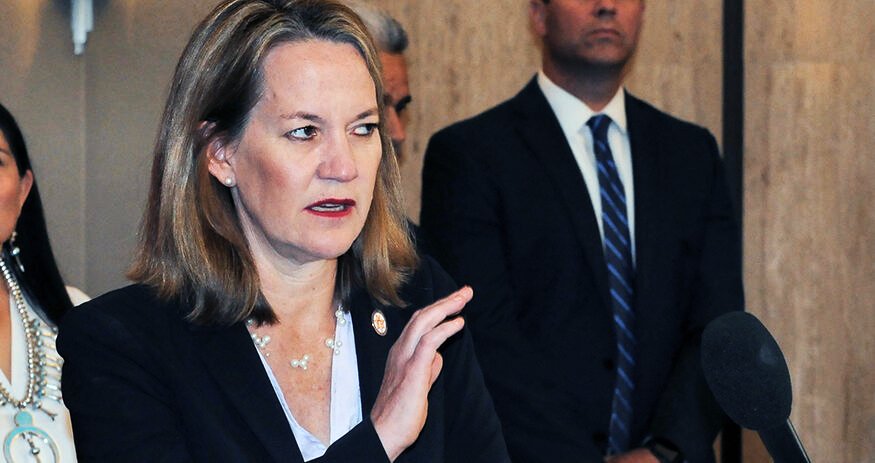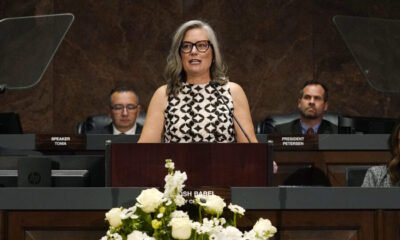courts
Mayes Demands Trump Special Prosecutor’s Files in Bold Move

Arizona Attorney General Kris Mayes has formally requested access to findings from the federal special counsel’s investigation into alleged interference by Donald Trump and his associates following the 2020 election.
Mayes aims to utilize this information to bolster her case against individuals involved in a scheme to submit fake electors from Arizona to Congress. In a letter addressed to U.S. Attorney General Merrick Garland, Mayes emphasized her previous request for access to Jack Smith’s investigation materials over two years ago, noting that the special counsel was unable to share any information at that time.
Despite the initial limitations, developments have since shifted. Smith has concluded his investigation, finding that prosecuting Trump is unfeasible due to the Department of Justice’s guidelines against charging a sitting president. Garland now intends to release only Smith’s report, excluding the underlying materials, which Mayes argues significantly alters her case dynamics.
Last year, a state grand jury indicted not only the fake electors who falsely claimed Trump won Arizona’s electoral votes but also seven of his supporters, including attorneys Rudy Giuliani and Mark Meadows. Trump was named as an “unindicted co-conspirator” in the proceedings, adding another layer to the case, which is set to go to trial in a year.
“Today, my office has one of the only remaining cases that includes charges against national actors,” Mayes stated, arguing that access to Smith’s findings could ensure accountability for those involved.
Additionally, Mayes expressed her commitment to upholding justice for all parties involved. In her correspondence to Garland, she highlighted her role as Arizona’s chief law enforcement officer, seeking not only evidence to support convictions but also any material that might exonerate defendants.
Reports have surfaced suggesting that Smith has already made significant disclosures to some of the individuals under scrutiny, who also face charges in Arizona. This unfolding scenario coincides with ongoing litigation in federal courts regarding the potential public release of Smith’s report.
On Monday, a federal judge ruled that the Department of Justice is permitted to release documents detailing Trump’s attempts to cling to power after the election and his ties to the January 6 Capitol insurrection; however, an injunction preventing this disclosure remains in effect for now. Mayes pointed out that this ongoing legal matter does not affect her request, citing a federal rule allowing for the sharing of grand jury information for use in state criminal cases.
At the core of the issue is the fact that Trump lost Arizona by a narrow margin of 10,457 votes. Despite numerous unsuccessful legal challenges to the election outcome, Ward and others falsely declared themselves rightful electors, attempting to mislead Congress.
The indictment suggests that the scheme was orchestrated by Trump’s allies, aimed at preventing Joe Biden from securing a sufficient number of electoral votes. The contentious effort was reportedly designed to enable then-Vice President Mike Pence to reject the electoral results during the certification process on January 6, a request he ultimately declined, leading to Biden’s election confirmation.
One of Trump’s attorneys, Jenna Ellis, has already agreed to cooperate with prosecutors in exchange for potential dismissal of her charges. She has committed to sharing information and testifying as needed in ongoing investigations.
Additionally, Kenneth Chesebro, another legal advisor tied to Trump’s campaign, previously met with Arizona investigators before the indictment and is expected to be a key witness in the trial.
Separately, Lorraine Pellegrino, a former chair of a local Republican group, pleaded guilty to a misdemeanor charge of filing a false instrument and has been sentenced to unsupervised probation and community service.


















